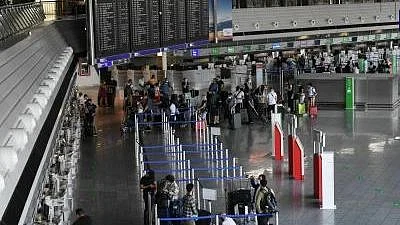The Central Board of Indirect Taxes and Customs (CBIC) on Tuesday, 10 August, asked airlines to mandatorily share PNR (passenger name record) details of all international passengers, 24 hours prior to the flight departure.
The finance ministry said over the Parliament's Monsoon Session that a total of 38 economic offenders, including Nirav Modi, Vijay Mallya and Mehul Choksi, fled the country in the last five years.
Notably, the move to gather the data comes after the Union government had to reject its proposed personal data protection framework in favour of a new set of legislation.
So, what information will international passengers have to share? And, what about privacy? Here's all you need to know:
What details will have to be shared?
Airlines will have to share 19 data points with the authorities, including:
Name of the passenger
Date of intended travel
All available contact details
All available payment or billing information such as credit card numbers
Travel status of the passenger that includes confirmation
Check-in status
Baggage information
Seat information
Travel agency or agent from where the ticket was issued
Why does the customs department need the data?
The 'Passenger Name Record Information Regulations, 2022' will prevent economic and other offenders from fleeing the country, as well as check any illicit trade such as smuggling.
The information, which will be shared with the National Targeting Centre-Passenger set up by the CBIC, will reportedly help authorities maintain "risk analysis" of passengers.
With this, India adds to the list of 60 other countries that collect PNR details of international passengers.
What data is shared right now?
Currently, airlines are required to share passenger information limited to name, nationality, and passport details in advance with the immigration authorities.
What led to this?
Airline officials have said that the move will create a standardised process of passenger data sharing with the Customs department, because non-standard requests for passenger data could lead to potential privacy infringements.
Earlier this year, the International Air Transport Association (IATA) – a trade body representing global airlines – wrote to the Ministry of Civil Aviation flagging non-standard requests seeking passenger details by law enforcement and investigative authorities .
Can authorities besides the customs department access this data?
Yes, but on a case-to-case basis.
Law enforcement agencies or government departments of any other country can also access the data, subject to the following conditions:
Maintenance of the same level of information protection privacy and safeguards
The agencies specify the purpose of the information being sought
But what about privacy?
According to the notification:
(1) The information received shall be subject to "the strict information privacy and protection in accordance with the provisions of any law for the time being in force."
(2) Processing information related to race or ethnic origin, political opinions, religion or philosophical beliefs, trade union membership, health, sexual life or sexual orientation, shall not be permitted.
(3) The passenger name record information shall be received, stored, processed, and disseminated in a secure system accessible only to the duly authorised officers by establishing "robust procedures to protect the privacy of passengers and crew members."
Further, there shall be an extensive independent system audit and security audit on annual basis, to prevent any misuse of the passenger name record information by an officer. The said officer, however, shall not carry out both the system audit and security audit.
Will there be a penalty for violations?
The team will process information for the prevention, detection, investigation and prosecution of offences under the Customs Act and also for the law enforcement agencies or government departments or any other country.
The Principal Additional Director General or Additional Director General of the National Customs Targeting Centre-Passenger, may impose a penalty of not be less than 25,000 rupees but not more than 50,000, for each act of non-compliance, on an aircraft operator or his authorised agent who contravenes or fails to comply with any provisions of these regulations.
